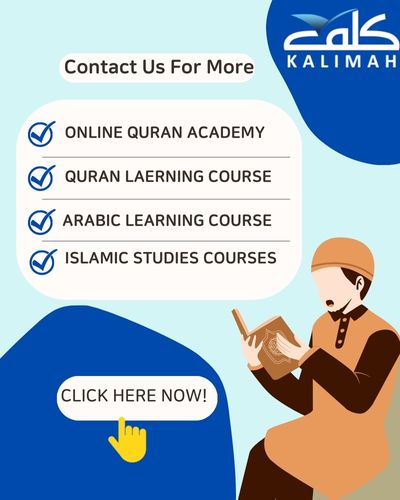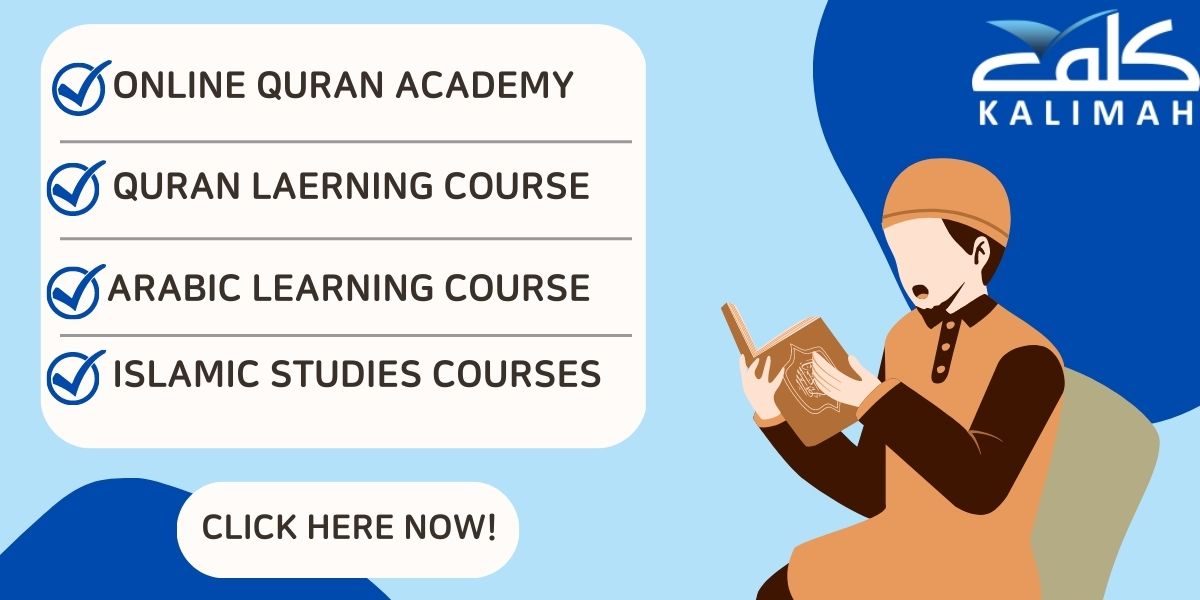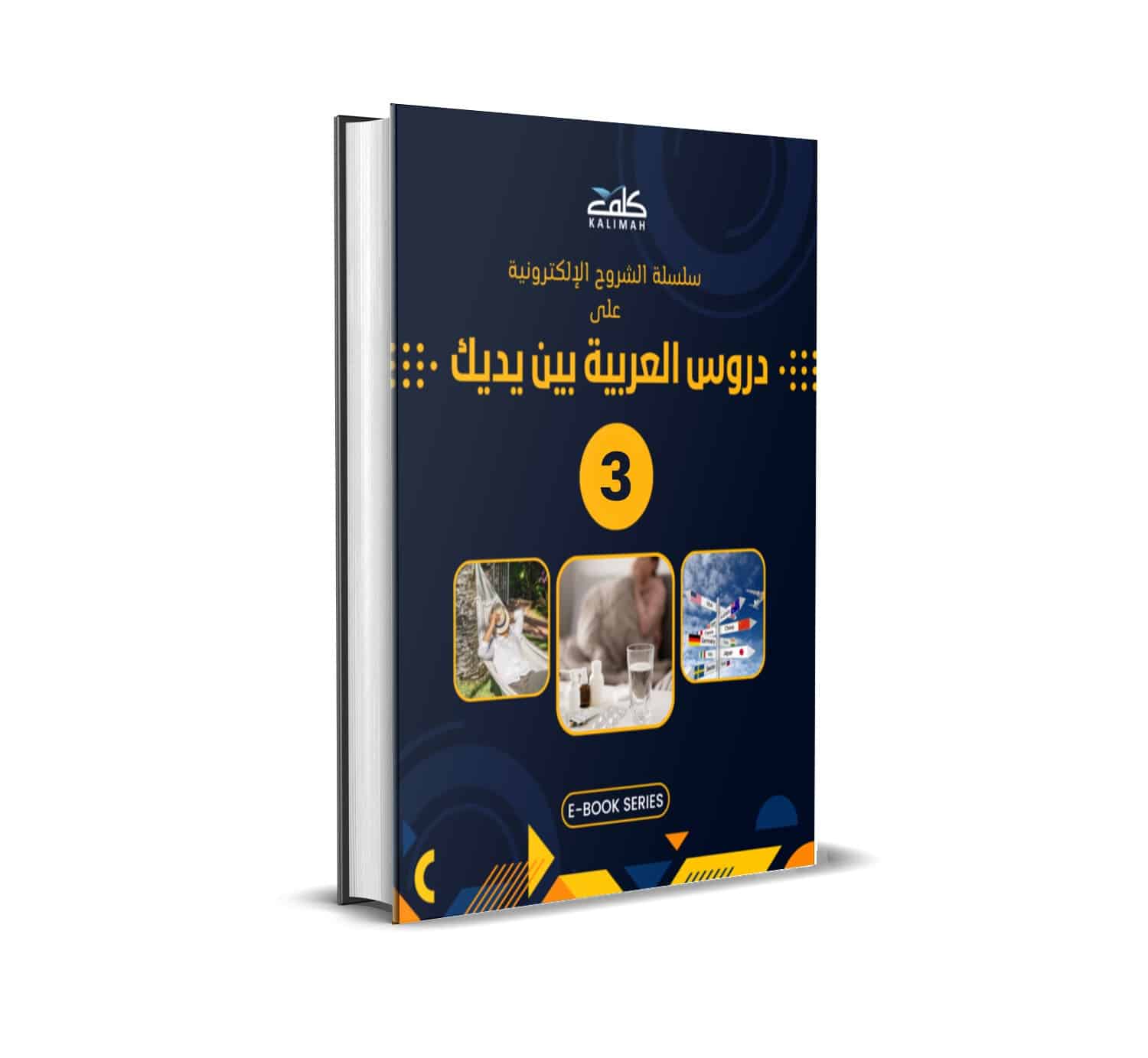In a nutshell: Advanced Arabic involves mastering the language to the level of a native speaker, focusing on complex grammar, nuanced expressions, and rich vocabulary. At this stage, learners engage deeply with Modern Standard Arabic and colloquial dialects, honing their skills in both structured and spontaneous communication.
Advanced Arabic is the highest and final level in learning the Arabic language. Students at the advanced level are expected to have mastered language mechanics and possess a high level of proficiency in Modern Standard Arabic, and special emphasis is placed on understanding the nuances of the language and the use of idiomatic expressions and rhetorical devices.
What Is Advanced Arabic?
Advanced level is defined as mastering the language and dealing with it like a native speaker.
At the advanced level, students study the basic structures and phonological system of one of the major colloquial dialects. Students are encouraged to adopt the same linguistic medium that intellectual and educated native speakers of Arabic adopt in their conversations on academic topics.
Students learn how to use and extend their advanced vocabulary, grammar, and communication skills more consciously and effectively.
speaking extemporaneously, using idioms and special expressions, and identifying intent and emotions by recognizing tone, content, and word usage. An increased focus on reading novels, short stories, and media analysis, along with listening to authentic interviews, debates, and talks, serves as the basis for dynamic oral communicative practice.

Learn Advanced Arabic Grammar
The rules of grammar in the Arabic language at the advanced level are many and varied. Below we will discuss very small part of them.
Generic Noun / اِسْم الجِنْس
Not all nouns can be linked to an original verbal root, particularly those that we refer to as ‘generic nouns’ أَسْماء الجِنْس. Namely, these generic Arabic nouns don’t follow specific patterns and signify the presence of a current being or multiple objects having something in common and sharing similar attributes.
Collective Noun / اِسْمُ الجَمْع
A collective noun اِسْمُ الجَمْعِ is a word that describes a group of individuals, objects, or creatures as one unified entity and they can be singular or plural depending on the context they are used in. Such terms are used when referring to large groups while still describing them all together.
Noun Of Time And Place / اِسْمُ الزَمان وَاسْمُ المَكان
It is a noun that denotes the place or time of the action, and they have a common formula, Contextual clues help us distinguish between the two values.
Noun Of Instrument / اسم الآلة
The “noun of instrument” (اسم الآلة) defines the instrument or tool used to achieve a specific action.
Diminutive / التصغير
Although far less common nowadays, diminutives still exist in modern Arabic. Diminutives are typically limited to certain nouns and adjectives. They are used to suggest a sense of smallness and can be seen as either positive or negative depending on the context.
When employed with an affectionate undertone, they indicate flirtation, coquetry, or endearment; conversely, if utilized negatively then contempt and belittlement may ensue.
Nouns Acting As Verbs And Onomatopoeia (Interjections) / أَسْماء الأَفْعال وَأَسْماء الأَصْوات
The interjection in Arabic can be a noun acting as onomatopoeia or a noun acting as a verb without accepting its signs or conjugation with only one static form for all (singular, dual, plural, masculine, and feminine). Furthermore, they are indeclinable (مَبْنيّ). We can consider them to be the equivalent of interjections in the English language. These tend to give more emphasis and clarity to the action described by the verb, thus making its meaning more vivid.
These interjections can be divided into three categories according to their use:
- Interjections with a past tense meaning: بُطْآنَ slowly هَيْهاتَ how far!
- Interjections with a present tense meaning: وَي oh! آه ah!
- Interjections expressing the imperative: حَيَّ come! مَكانَكَ stay!
Demonstrative Pronouns اسم الإشارة
Demonstrative pronouns أسماء الإشارة asmaa’ al ishara are words like ‘this’, ‘that’, ‘these’ and ‘those’.
They vary according to gender (male and female) and number (singular, dual and plural).
This/these (variations of هٰذَآ)
| Plural | Dual | Singular | |
| هٰؤُلاءِ | هَذَانِ | هَذَا | Male |
| هٰؤُلاءِ | هَاتَانِ | هَذِهِ | Female |
That/those (variations of ذٰلِكَ)
| Plural | Dual | Singular | |
| أُولٰئكَ | ذَانِكَ | ذٰلِكَ | Male |
| أُولٰئكَ | تَانِكَ | تِلكَ | Female |
For Place:
| Here | There |
| هنا | هُناك |
More Examples:
هَذَا القَلَمُ أَسْوَدٌ This is a black pen
هَذِهِ الْبِنتُ ذَكِيَّةٌ This is an intelligent girl
هَذَانِ الكِتَابَانِ مُفِيدَانِ These two books are useful
هَاتَانِ السَيَّارَتَانِ جَدِيدَتَانِ These two cars are new
هَؤُلَاءِ الطُلَّابِ مُتَفَوِّقُون These students are exemplary
تِلكِ الحَقِيبَةُ بَيضَاءٌ That is a white bag
أُولَئِكَ الوَردَاتُ جَمِيلَاتٌ Those flowers are beautiful
هُنَا بَيّتِي My house is here
هُنَاكَ مَطعَمٌ جَيّدٌ There is a good restaurant there
Relative Pronouns الإسم الموصول
Relative pronouns (such as “that, which, who”) begin relative clauses, which act like adjectives and describe the noun they follow.
In Arabic, if the relative pronoun is referring back to a noun that is a direct object or the object of a preposition (like “the book [that] I read,” “the girl [whom] I wrote to”), a pronoun suffix referring to this noun must be added to the relative pronoun.
الكتاب الذي قرأته (al-kitaab alladi qara’tuhu)
the book that I read – lit. “the book that I read it”
البنت التي كتبت لها (al-bint allati katabtu laha)
the girl whom I wrote to – lit. “the girl whom I wrote to her”
If you are referring to a noun that is indefinite, you do not use a relative pronoun.
لي زميل يتكلم ست لغات (lii zamiil yatakallam sittu luġaat)
I have a colleague who speaks six languages. – Note that although English still uses the relative pronoun “who,” there’s no corresponding pronoun in Arabic.
Learn Advanced Arabic Phrases
Learn the phrases in Arabic language in the advanced level one of the important things that you should focus on well, below we will review some of these phrases.
| English | Arabic | Transliteration |
| to shed light on | سَلَّطَ / يُسَلِّطُ الضَّوء على | sallata / yusallitu al-daw’ ‘ala |
| an integral part of | جُزء لا يَتَجَزَّأ مِن | juz’ la yatajazza’ min |
| to go to any length, to spare no effort | بَذَلَ / يَبذِلُ كُلَّ غالٍ وَنَفيسٍ | bazzala / yabdhilu kull ghaliyyin wa nafeesin |
| overnight | بَينَ لَيلَةٍ وَضُحاها | bayna laylatin wa duhaaha |
| on the verge of collapse | على حافةِ الاِنهِيار | ‘ala haafat al-inhiyar |
| to pave the way for | مَهَّدَ / يُمَهِّدُ الطَّريقَ إلى | mahhada / yumahhidu al-tareeq ila |
| in the wake of | في أَعقاب | fi a’qaab |
| unexpected repercussions/implications | تَداعِيات غَير مُتَوَقَّعة | tada’iyyat ghayr mutawaqqi’ah |
| with this in mind, in this sense, from this perspective | مِن هذا المُنطَلَق | min hadha al-muntalaq |
| to play a crucial role in | لَعِبَ / يَلعَبُ دَوراً حاسِماً في | la’iba / yal’abu dawran hasiman fi |
| to eventually get to the point where | آلَ / يَؤولُ بِهِ المَطافُ إلى | aal / ya’oolu bihi al-mataaf ila |
| let’s suppose for the sake of argument that | لِنَفرِضْ جَدَلاً أَنَّ | linafriḍ jadalan ann |
| Rhythm plays an important role in Arabic poetry. | للإيقاع دور مهم في الشعر العربي. | lil-‘iqaa’ dawr mohim fi al-shi’r al-‘arabi |
| The author uses metaphor creatively. | يستخدم الكاتب المجاز بشكل مبدع. | yastakhdim al-katib al-majaaz bishakl mubdi‘ |
| We must preserve our cultural heritage. | علينا الحفاظ على تراثنا الثقافي. | ‘alayna al-hifaz ‘ala turathina al-thaqafi |
| I read a fantastic novel recently. | قرأت رواية رائعة مؤخرًا. | qara’t riwayah ra’i‘ah mukharran |
| Cinematic films have a significant impact on society. | الأفلام الفيلمية لها تأثير كبير على المجتمع. | al-aflaam al-filmiya laha ta’thir kabeer ‘ala al-mujtamaa’ |
| This student deserves the award. | يستحق هذا الطالب الجائزة. | yastahiqq hadha al-talib al-ja’iza |
| Don’t assume things before confirming them. | لا تفترض الأشياء قبل التأكد منها. | la tafترض al-ashyaa’ qabla al-ta’akkud minha |
| The lecturer criticized the researcher’s idea. | انتقد المحاضر فكرة الباحث. | intaqad al-muhaadir fikrat al-baahith |
| Try to avoid mistakes. | حاول أن تتجنب الأخطاء. | hawil an tatajanab al-akhṭaa’ |
| The police suspect a particular person. | يشتبه الشرطة في شخص معين. | yashtabihu al-shurṭa fi shakhs mu‘ayyan |
| What is the gist of your message? | ما هو فحوى رسالتك؟ | ma huwa fahwa risalatik? |
| I am an optimistic person. | أنا شخص متفائل. | ana shakhs mutafa’il |
| Don’t be pessimistic. | لا تكن متشائمًا. | la takun mutasha’iman |
| Every rule has exceptions. | كل القواعد لها استثناءات. | kull al-qawa’id laha istithna’at |
| This topic is very complex. | هذا الموضوع معقد للغاية. | hadha al-mawdu‘ mu‘aqad lilghaya |
| I prepared a comprehensive analysis of the data. | قمت بإعداد تحليل شامل للبيانات. | qumtu bi‘i‘dad tahleel shaamil lil-bayanaat |
| My research methodology was precise. | منهجيتي في البحث كانت دقيقة. | manhajiyyati fi al-bahth kanat daqiqah |
| We conducted a comparison between the two methods. | أجرينا مقارنة بين الطريقتين. | ajrayna muqaaranah bayna al-tariqatein |
| This initiative will lead to significant improvements. | هذه المبادرة ستؤدي إلى تحسينات كبيرة. | hadhih al-mubadara satau’di ila tahseenat kabeera |
| The negotiations were successful. | كانت المفاوضات ناجحة. | kanat al-mufawadat naajiha |
| I felt hesitant before making the decision. | شعرت بالتردد قبل اتخاذ القرار. | sha‘artu bi al-taradud qabla itikhaadh al-qaraar |
| I am enthusiastic about this opportunity. | أنا متحمس لهذه الفرصة. | ana mutahammis lihadhih al-fursa |
| The president’s speech was influential. | كان خطاب الرئيس مؤثرًا. | kan khitaab al-ra’is mu’athiran |
| The result was astonishing. | كانت النتيجة مذهلة. | kanat al-nateeja mudhila |
| Today was very exhausting. | كان اليوم مرهقًا جدًا. | kan al-yawm murhiqan jiddan |
| Agricultural output is becoming greater and greater. | ﺗُﻌﻄِﻲ ﺍَﻟﻤَﺰﺭَﻋَﺔُ ﻣَﺤﺼُﻮﻟﺎً ﻣُﺘَﺰَﺍﻳِﺪﺍً | tu‘ṭi al-mazra‘ah maḥṣūlan mutazāyidan |
| Years passed before I saw her again. | ﺗُﻌﻄِﻲ ﺍَﻟﻤَﺰﺭَﻋَﺔُ ﻣَﺤﺼُﻮﻟﺎً ﻣُﺘَﺰَﺍﻳِﺪﺍً | marra ‘iddat sanawat qabl an araahā min jadid |
| The hero dies in the last act. | ﺍَﻟﺒَﻄَﻞُ ﻳَﻤُﻮﺕُ ﻓِﻲ ﺍَﻟﻔَﺼﻞِ ﺍَﻟﺂﺧِﻴﺮِ ﻣِﻦ ﺍَﻟﻤَﺴﺮَﺣِﻴَّﺔِ | al-batal yamutu fi al-fasl al-akhir min al-masraḥiyya |
| I give you my stories … guard their secrets. | ﺃَﺳﺘَﻮﺩِﻋُﻜُﻢ ﺣِﻜَﺎﻳَﺘِﻴِﻲ ﺍُﺣﺮُﺳُﻮﺍ ﺃَﺳﺮَﺍﺭﻫَﺎ | astawdi‘ukum hikayati uhraṣū wā asrārihā |
| I give you my sorrow …. respect its nobility. | ﺃَﺳﺘَﻮﺩِﻋُﻜُﻢ ﺣُﺰﻧِﻲ ﺍِﺣﺘَﺮِﻣُﻮﺍ ﻧُﺒﻠَﻪُ | astawdi‘ukum ḥuzni iḥtirmūnā nubalatuhā |
| I give you my soul … forgive me because I know what I am doing | ﺃَﺳﺘَﻮﺩِﻋُﻜُﻢ ﺭُﻭﺣِﻲ ﺍِﻏﻔِﺮُﻭﺍ ﻟِﻲ ﻟِﺌَﻨَّﻨِﻲ ﺃَﻋﺮِﻑُ ﻣَﺎ ﺍَﻟَّﺬِﻱ ﺃَﻓﻌَﻠُﻪُ | astawdi‘ukum rūḥī iġfirū lī li’annī a‘rif mā alladhī ‘af‘aluhu |
| Without a doubt … you hurry to that person every night to immerse yourself in her painful tears | دون شك … تسرع إلى تلك الشخصية كل ليلة لتغمر نفسك في دموعها المؤلمة | dūn shak … tasra‘ ilā tilka al-shakhsiyya kull layla litaghmir nafsaka fi dumū‘ihā al-mu’limah |
How Many Words Do You Need To Know To Be Fluent In Arabic?
Fluency is not solely determined by the number of words but by how effectively you can use them.
However, a vocabulary of around 5,000 to 10,000 words is often associated with a high level of proficiency.Focus on mastering essential everyday words, phrases, and expressions to enhance your communicative abilities.
Learn Advanced Arabic Words
People need to use words to express themselves in any language. But usually a new learner keeps using the same expressions and words, and at some point, the conversation suddenly stops due to lack of words.
The main reason for such communication problems is lack of vocabulary. The good news is that the more words you learn, the easier it becomes to memorize them.
| English | Arabic | Transcription |
| To provide | ليزود | liuzawid |
| Surge | طفرة | Tafra |
| To proceed | المضي قدما | almudii quduman |
| Voting | إنتخاب | Inikhab |
| To understand | لفهم | lifahm |
| Suggestion | إقتراح | Iqtirah |
| To protect | لتحمي | litahmi |
| Solidarity | تضامن | Tadamoun |
| To surpass | لتجاوز | litajawaz |
| Loyalty | ولاء | Walaa |
| To exonerate | لتبرئة | litabria |
| Agreement | إتفاقية | Ittifaqyya |
| To contemplate | لنتأمل | linata’amal |
| Conflict | صراع | Siraa |
| To scrutinize | للتدقيق | liltadqiq |
| Isolated | معزول | Maazoul |
| To strengthen | لتعزيز | litaeziz |
| Community | مجتمع | Mujitaama |
| To elaborate | للتفصيل | liltafsil |
| Council | مجلس | Majlees |
| To betray | لخيانة | likhiana |
| Investment | استثمار | Istismar |
| To inherit | ليرث | liarth |
| License | رخصة | Roukhsa |
| To volunteer | للتطوع | liltatawue |
| Commission | عمولة | Omoulla |
| To reconcile | للتوفيق | liltawfiq |
| Guarantee | ضمان | Damaan |
| To evaluate | لتقييم | litaqyim |
| Organization | منظمة | Monazzama |
| To augment | لزيادة | liziada |
| Inflation | تضخم | Tadakhoum |
| To innovate | للابتكار | liliabtikar |
| Protection | حماية | Hymaya |
| To embrace | لإحتضان | li’htidan |
| Innovation | إبتكار | Ibtikar |
| To achieve | ليحقق | liuhaqaq |
| Blackmail | إبتزاز | Ibtizaz |
| To abolish | إلغاء | algha’ |
| Impression | إنطباع | Intibaa |
| To facilitate | لتسهيل | litashil |
| Diversity | إختلاف | Ikhtilaaf |
| To provoke | لاستفزاز | liastifzaz |
| Clarity | وضوح | Wodouh |
| To simulate | لمحاكاة | limuhaka |
| Balanced | متعادل | Moutaadil |
| To extinguish | لإطفاء | li’iitfa’ |
| Simulation | محاكاة | Mouhakka |
| To observe | لمراقبة | limuraqaba |
| Competition | منافسة | Monafassa |
| To express | للتعبير | liltaebir |
| Recession | ركود | Roukoud |
| To forget | لتنسى | litansaa |
| Initiative | مبادرة | Moubadara |
| To introduce | لتقديم | litaqdim |
| Power | سلطة | Soulta |
| To ignite | لإشعال | li’iisheal |
| Equality | مساواة | Mousawaa |
How Long Does It Take To Learn Advanced Arabic?
The research indicates a person needs 2000 to 2500 study hours to establish conversational proficiency across broad topics and be fluent. Studies show the best results come from High-Intensity Language Training– weeks or months of 20+ study hours per week– along with consistent weekly sessions throughout the year, usually 4-6 hours per week.
However, by examining the previously mentioned factors, you can learn Arabic in less or more periods than that. You don’t have to worry about the duration, what’s more important is how far you’ve gone in Arabic learning and what you need to focus on to progress more.
How To Learn Arabic Online Advanced?
Some learners look forward to perfecting their speaking skills to communicate and discuss with native speakers, precisely if they visit Arab countries. So here is one of the recommended courses for the advanced level to master your Arabic. Kalimah center
To overcome discouraging challenges throughout the learning process, you should be aware that Arabic is one of the hardest languages to learn, and being proficient in this language takes patience.
Additionally, you should lean on the best courses that help you reach an advanced level with highly-qualified and expert tutors.
Do You Aspire To Improve Your Arabic Level And Learn Advanced Arabic Online?
The most challenging step in learning any language is not only the beginning but also the consistency to level up in the learning journey.
Once you start learning, you face difficulties that threaten your ability to achieve your goal of Arabic fluency.
This language has many challenges in vocabulary and grammar. They either frustrate you and stop you from keeping going or stimulate you to boost your level.
Why You Should Learn Arabic Online With Kalimah?
We are a dedicated online resource for all students around the world seeking to learn Arabic Online. We hope to help you through your Arabic learning journey and to make it as easy and enjoyable as possible.
We do provide an individual service where you or your children can take private Arabic lessons with highly qualified, male or female, native Arabic tutors. Also, you can join our group classes, which provide you with engagement with colleagues, passion, and competition at a cheap price.
Still undecided? Kalimah-center offers a complimentary first session in order to help you get started. During this session, you’ll have the opportunity to connect with your tutor, discuss your learning objectives, and establish a customized class schedule.
Kalimah-center flexible tutoring options can accommodate your preferences and schedule, enabling you to learn at your own pace!
📚 Explore Our Courses:
Online Arabic Course: Tailored to your level, our comprehensive Arabic program includes 16 teaching levels and 400+ hours of personalized sessions.
Online Quran With Tajweed Course: Perfect for non-Arabic speakers, our course spans 13 levels and equips you with Tajweed mastery from beginner to advanced.
Online Arabic Course For Kids: Nurture your child’s love for Arabic with our engaging and structured program, available in 24 levels for primary, intermediate, and secondary stages.
🚀 Start Your Free Trial Today! 🚀
Don’t miss out on this life-changing opportunity to deepen your faith and knowledge. Sign up now for your free trial and take the first step towards becoming a better practicing Muslim with Kalimah Center!
Conclusion
Mastering the Arabic language and reaching an advanced level is not an easy matter. You must organize enough time for it and also the motivation that makes you continue. On the other hand, it is not very difficult or impossible to reach an advanced level.
One of the most important factors that make you reach this level is commitment first, and secondly, choosing a competent teacher who will help you in your journey, which is sometimes exhausting and often enjoyable.














